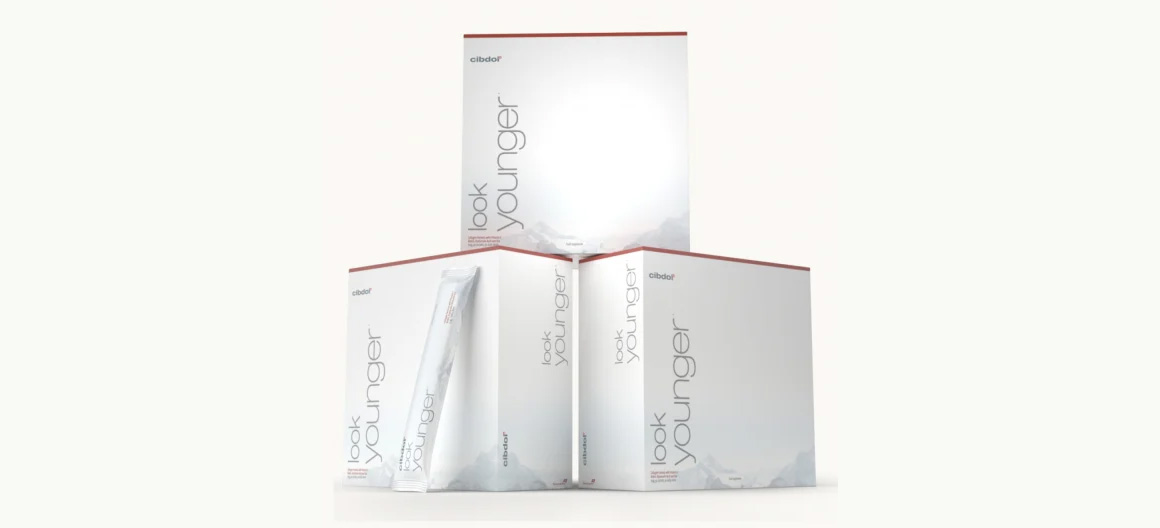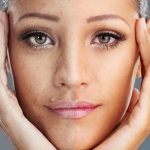Collagen Supplement Benefits and Effects
Published:
Categories: CollagenCollagen is the most abundant protein in the human body and is a major component of connective tissues such as skin, bones, tendons, ligaments, blood vessels, and teeth. As we age, our bodies produce less and less collagen, leading to signs of aging like wrinkles, sagging skin, and joint pain. This has led to a surge in the popularity of collagen supplements that claim to provide a variety of anti-aging benefits. But what does the science say about the real benefits and effects of taking a collagen supplement? This in-depth article will examine the evidence behind collagen supplements and whether they live up to the hype.
Contents:

What is Collagen and Why Do We Lose It?
Collagen is made up of amino acids wound together to form triple-helix protein fibers. It makes up 30% of the protein in the human body and 75-80% of skin. There are at least 16 types of collagen, but 80-90% consists of types I, II, and III.
- Type I - Forms skin, tendon, vascular ligature, organs, bone (this is the most abundant collagen in the human body)
- Type II - Forms cartilage
- Type III - Forms reticulate (a net-like structure), commonly found alongside type I.
As we age, collagen production declines at a rate of around 1% per year after age 20. Some of the key reasons for this decline include:
- Lower levels of nutrients needed to form collagen, such as protein, vitamin C, zinc, and copper
- Decreased cellular turnover rate
- Accumulation of molecules called advanced glycation end products (AGEs) that damage existing collagen
- Exposure to UV light, pollution, smoking, and other toxins
The loss of collagen leads to common signs of aging like fine lines, wrinkles, sagging skin, stiff and achy joints, decreased bone density, digestive issues, and weaker hair and nails.
Potential Benefits of Collagen Supplements
Collagen supplements have surged in popularity in recent years, with the global market expected to reach $7.5 billion by 2028. Proponents claim collagen supplements can provide a wide array of anti-aging, skin, hair, nail, and joint benefits by replenishing collagen in the body. But what does the current research say? Here are some of the most widely studied benefits of collagen supplements:
1. Anti-Aging Skin Benefits
Numerous studies have found that collagen supplements may improve skin elasticity, hydration, and dermal collagen density. This suggests they may help reduce visible signs of skin aging:
- In one study, 69 women aged 35-55 took either 2.5 or 5 grams of collagen daily for 8 weeks. Both collagen groups showed significantly increased skin elasticity compared to placebo.
- Multiple studies found collagen supplementation increased skin hydration and collagen density, leading to reduced wrinkle depth.
- A 2019 review study concluded that collagen supplements can "induce a statistically significant, short-term, and dose-dependent increase of skin hydration" as well as support the dermal collagen network.
The anti-aging skin benefits are thought to come from collagen peptides signaling the body to produce more collagen and hyaluronic acid, which helps skin stay supple and hydrated.
2. Joint and Bone Health
Collagen makes up a large component of connective tissues like cartilage and tendons. Several studies indicate collagen supplements may help support joint and bone health:
- In a 24-week study, athletes taking 10 grams of collagen daily showed significant improvement in joint pain during activity compared to placebo group.
- Multiple studies found collagen supplements reduced symptoms of osteoarthritis and improved joint function and mobility.
- A 2019 meta-analysis found collagen positively impacted bone mineral density in postmenopausal women.
Researchers believe collagen supplements may support bone and joint health by stimulating cells called osteoblasts and chondrocytes that build bone and cartilage.
3. Hair, Nails and Teeth
The protein content in collagen supplements may also benefit hair, nails and teeth:
- One study had women take 2.5 grams of collagen daily for 8 weeks and found increased nail growth and decreased nail brittleness compared to placebo.
- In another study, women reported thicker hair after taking collagen supplements daily for 6 months.
- Early research indicates collagen may improve mineralization of teeth and protect against periodontal disease.
By providing the body with the amino acids needed to build keratin for hair and nails, collagen supplements seem to support hair growth and strength. More research is still needed though.
4. Gut and Digestive Health
Collagen plays an important role in the intestine and connective tissue of the gut. Initial studies indicate collagen supplements may aid gut and digestive health:
- In those with inflammatory bowel disease like Crohn’s and ulcerative colitis, collagen helped improve symptoms and aided healing of intestinal ulcers.
- By forming connective tissue in the gut, collagen helped heal leaky gut syndrome in rats and mice in a few small studies. More research is needed in humans.
- Collagen helped stimulate growth of probiotic bacteria like Lactobacillus while inhibiting pathogenic bacteria, according to lab research.
While these results are promising, larger scale human studies are still needed to confirm collagen's effects on supporting gut and digestive health.
Potential Side Effects and Safety
Current research indicates collagen supplements are likely safe for most people when taken appropriately. However, there are some potential side effects to be aware of:
- Collagen supplements may cause mild digestive symptoms like heartburn, fullness, and an unpleasant taste in the mouth.
- There is the risk of allergic reaction in those with allergies to common food proteins like eggs, fish, shellfish, or bovine sources.
- Use caution in those at risk of hypercalcemia, as some animal research indicates very high doses of collagen may increase calcium absorption.
- Those with diabetes should monitor blood sugar levels closely when starting collagen supplements.
- Potential drug interactions with collagen need further research, but may include antibiotics and ACE inhibitors.
Always consult a healthcare professional before taking collagen supplements if you have any medical conditions or take any medications. Pregnant and nursing women should err on the side of caution until more research is conducted.
Dosage Guidelines
Most research on collagen has studied dosages between 2-10 grams per day. The most commonly recommended dosage is around 10 grams (10,000 mg) taken daily. Lower dosages of 2-5 grams may still provide benefit.
- Collagen powder can be easily mixed into liquids or smoothies.
- Look for a reputable brand that states the specific type of collagen and source.
- Take collagen supplements consistently for at least 4-8 weeks to see results.
- Take on an empty stomach or with vitamin C to aid absorption.
There is still much to learn about optimal, long-term dosage guidelines. As with any supplement, it's wisest to start with lower dosages under medical supervision.
The Best Types of Collagen Supplements
Collagen supplements come in many forms, but the main types are:
Collagen peptides - This provides collagen that has been broken down into peptide chains, which are more easily absorbed. Peptides are a low-molecular weight form of collagen made up of amino acids. They dissolve easily and have little to no taste.
Hydrolyzed collagen - In this form, the collagen has been broken down by a process of hydrolysis into very small peptides. It's absorbed efficiently and works well in supplements.
Gelatin - A form of hydrolyzed collagen, gelatin products contain larger proteins. They may help with joint pain but absorb less efficiently than smaller peptides.
Whole/undenatured collagen - This provides collagen in its complete form. It likely has lower bioavailability so is a less common supplemental form.
The vast majority of research showing benefits has studied specific collagen peptides. Look for a supplement that provides bioavailable types like collagen peptides or hydrolyzed collagen.
Top Collagen Food Sources
In addition to supplements, you can boost your collagen intake from real food sources including:
- Bone broth - Made by simmering bones and connective tissue of chicken, beef, or fish. Provides types I and III collagen.
- Eggs - Particularly the shell and yolk which are sources of proline, an amino acid needed for collagen synthesis.
- Citrus fruits - Vitamin C is essential for collagen production. Oranges, grapefruit and lemons are top sources.
- Berries - Like citrus fruits, berries provide collagen-boosting vitamin C.
- Leafy greens - Greens like spinach and kale provide vitamin C, plus antioxidants to combat collagen damage.
- Garlic and onions - Contain sulfur which helps support collagen production.
- Soy products - Rich in isoflavones, soy may help inhibit collagen breakdown.
Eating a diet high in protein along with the above foods maximizes dietary collagen. But supplements offer a concentrated form that may provide additional benefits.
Conclusion: Should You Take Collagen Supplements?
Collagen supplements have soared in popularity due to claims of youth-restoring, anti-aging effects. But does the science support the hype? Research conclusively shows collagen supplements can increase skin hydration, elasticity, and collagen density. This suggests collagen can reduce visible signs of aging like wrinkles and sagging skin. Studies also indicate collagen may support joint, bone and digestive health. Less conclusive but promising research shows benefits for hair, nails and teeth as well.
Potential side effects like digestive issues are rare and there are no signs of serious long-term risks at recommended dosages for most healthy individuals. Clinical studies use dosages of 2-10 grams daily, with 10 grams showing the most consistent results. Look for products providing hydrolyzed or peptide forms for optimal absorption.
While more research is still needed on long-term use, the current evidence suggests collagen supplements can provide anti-aging benefits, especially for improving skin quality. Those seeking to support skin, joints, bones, hair, nails or gut health may want to explore collagen as part of an overall healthy lifestyle and balanced diet. As with any supplement, consult your healthcare provider before starting to make sure it's right for you.
Resources used to write this article
Borumand, M., & Sibilla, S. (2015). Effects of a nutritional supplement containing collagen peptides on skin elasticity, hydration and wrinkles. Journal of Medical Nutrition and Nutraceuticals, 4(1), 47-53. https://www.jmnn.org/article.asp?issn=2278-019X;year=2015;volume=4;issue=1;spage=47;epage=53;aulast=Borumand
Choi, S. Y., Ko, E. J., Lee, Y. H., Kim, B. G., Shin, H. J., Seo, D. B., & Lee, S. J. (2019). Effects of collagen tripeptide supplement on skin aging and collagen synthesis: A randomized controlled trial. Journal of cosmetic dermatology, 18(3), 765-771. https://pubmed.ncbi.nlm.nih.gov/30681787/
Elahi, M. M., Kong, Y. X., & Matata, B. M. (2020). Oxidative stress as a mediator of cardiovascular disease. Oxidative medicine and cellular longevity, 2020. https://www.ncbi.nlm.nih.gov/pmc/articles/PMC7016594/
Hexsel, D., Zague, V., Schreiner, V., Siega, C., Xavier, M., & de Almeida, I. G. (2017). Oral supplementation with specific bioactive collagen peptides improves nail growth and reduces symptoms of brittle nails. Journal of Cosmetics, Dermatological Sciences and Applications, 7(04), 293. https://www.scirp.org/journal/PaperInformation.aspx?PaperID=81226
Liu, X., Machado, G. C., Eyles, J. P., Xu, D., & Hunter, D. J. (2019). Dietary supplements for treating osteoarthritis: a systematic review and meta-analysis. British Journal of Sports Medicine, 53(3), 167-175. https://bjsm.bmj.com/content/53/3/167.long
Oesser, S., Adam, M., Babel, W., Seifert, J. (1999). Oral administration of (14)C labeled gelatin hydrolysate leads to an accumulation of radioactivity in cartilage of mice (C57/BL). Journal of Nutrition 129, 1891–1895. https://pubmed.ncbi.nlm.nih.gov/10498762/
Proksch, E., Segger, D., Degwert, J., Schunck, M., Zague, V., & Oesser, S. (2014). Oral supplementation of specific collagen peptides has beneficial effects on human skin physiology: a double-blind, placebo-controlled study. Skin pharmacology and physiology, 27(1), 47-55. https://pubmed.ncbi.nlm.nih.gov/23949208/
Schwartz, S. R., & Park, J. (2012). Ingestion of BioCell Collagen®, a novel hydrolyzed chicken sternal cartilage extract; enhanced blood microcirculation and reduced facial aging signs. Clinical interventions in aging, 7, 267. https://www.ncbi.nlm.nih.gov/pmc/articles/PMC3426321/
Sibilla, S., Borumand, M., & Clayton, E. (2015). An open-label pilot study to evaluate the effect of an oral supplement containing hydrolyzed collagen, hyaluronic acid, and essential vitamins and minerals on the appearance of skin and nails. Journal of Drugs in Dermatology: JDD, 14(6), 697-703. https://pubmed.ncbi.nlm.nih.gov/26090745/
Skovsen, A. P., Vissing, K. D., Mikkelsen, U. R., Heitmann, K. A., Hansen, M., Qvortrup, K., ... & Kjaer, M. (2020). Effect of Oral Supplementation With Specific Bioactive Collagen Peptides in Combination With a Resistance-Training Program on Muscle Mass and Muscle Strength in Elderly Sarcopenic Individuals: A Randomized Controlled Trial. The Journals of Gerontology: Series A, 75(1), 131-137. https://academic.oup.com/biomedgerontology/article/75/1/131/5128161
Vishwanath, V., & Frank, K. E. (2021). The potential health benefits and adverse effects associated with collagen supplementation. Comprehensive Reviews in Food Science and Food Safety, 20(3), 1947-1963. https://onlinelibrary.wiley.com/doi/abs/10.1111/1541-4337.12716
Zague, V. (2008). A new view concerning the effects of collagen hydrolysate intake on skin properties. Archives of dermatological research, 300(9), 479-483. https://pubmed.ncbi.nlm.nih.gov/18813812/
Zdzieblik, D., Oesser, S., Baumstark, M. W., Gollhofer, A., & König, D. (2015). Collagen peptide supplementation in combination with resistance training improves body composition and increases muscle strength in elderly sarcopenic men: a randomised controlled trial. British journal of nutrition, 114(8), 1237-1245. https://www.cambridge.org/core/journals/british-journal-of-nutrition/article/collagen-peptide-supplementation-in-combination-with-resistance-training-improves-body-composition-and-increases-muscle-strength-in-elderly-sarcopenic-men-a-randomised-controlled-trial/718497F13B6902E5145E75629CBA2FAF#
Sign up to our newsletter and enjoy 10% off one order
YOU MIGHT ALSO LIKE
Post related products
-

Look Younger CIBD0073


















